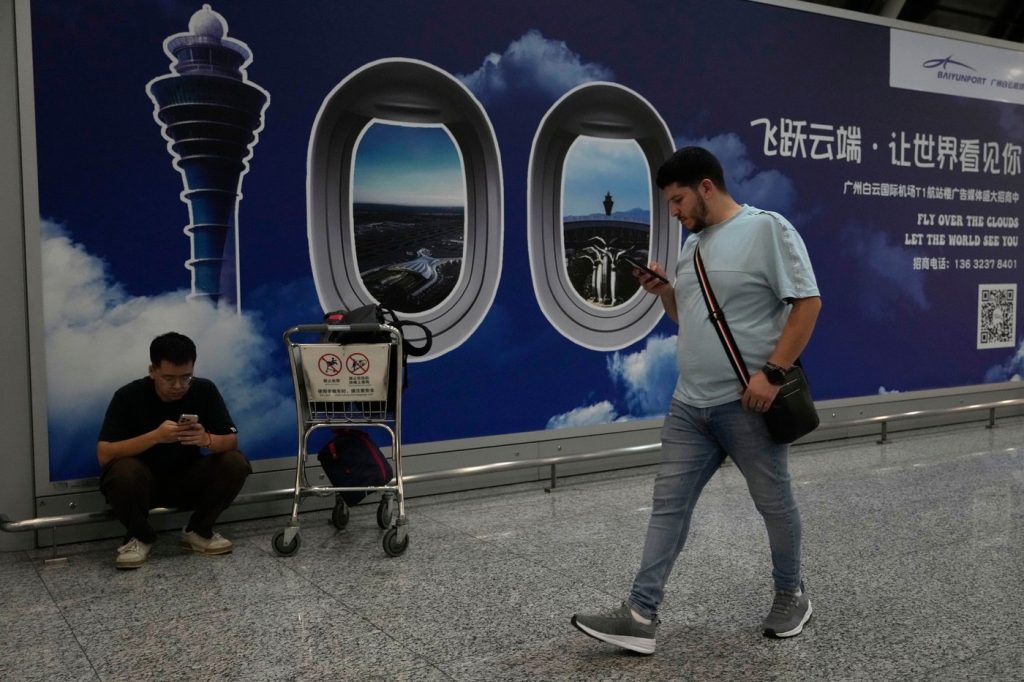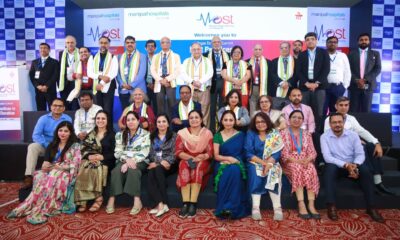Top Stories
China Launches New K-Visa to Attract Global Tech Talent Now

UPDATE: China has officially launched its new K-visa program aimed at attracting global tech talent, positioning itself as a competitor to the United States in the tech recruitment arena. The K-visa, unveiled last month, is designed specifically for skilled science and technology workers, offering a streamlined path for professionals like Vaishnavi Srinivasagopalan, an Indian IT expert seeking opportunities in China.
This urgent initiative comes amid tightening immigration policies in the U.S. that have left many tech professionals reconsidering their options. The H-1B visa program, a key pathway for foreign workers in the U.S., has faced increased fees and restrictions under former President Donald Trump‘s administration, making China’s new K-visa an appealing alternative.
The K-visa allows applicants to bypass the requirement of having a job offer before applying, a significant shift from traditional visa processes. This change is part of China’s broader strategy to enhance its capabilities in advanced technologies, including artificial intelligence and semiconductors, as the nation aims for global leadership in these fields.
According to Bikash Kali Das, an Indian master’s student at Sichuan University, many students who hoped for an H-1B visa are now exploring options like the K-visa. With the youth unemployment rate in China nearing 18%, the government is racing against time to fill critical skills gaps in its workforce.
The ruling Communist Party has prioritized attracting foreign talent and investment, viewing the U.S.’s stringent immigration policies as a unique opportunity. As noted by Barbara Kelemen from the security intelligence firm Dragonfly, China’s outreach could significantly alter the global tech landscape.
However, the introduction of the K-visa has sparked concerns among local job seekers. Zhou Xinying, a postgraduate student from Zhejiang University, expressed fears that an influx of foreign professionals could escalate competition in an already saturated job market. Local software engineer Kyle Huang echoed these sentiments, worrying that the K-visa could threaten existing job opportunities for Chinese nationals.
Despite these concerns, a state-backed commentary from the Shanghai Observer suggests that foreign professionals will ultimately benefit the local economy by introducing new technologies and perspectives. The article argues that addressing the “gap and mismatch” between job seekers and the tech industry’s demands is crucial for economic growth.
As China continues to attract skilled workers from abroad, including high-profile professionals like Fei Su from Intel, the nation faces hurdles such as language barriers and internet censorship that could deter potential applicants. Currently, only an estimated 711,000 foreign workers reside in China, highlighting the challenges the K-visa program must overcome to compete effectively.
Experts warn that while the K-visa is a step forward, China must do more than provide convenient visa pathways to draw in top talent from around the world. David Stepat from Dezan Shira & Associates points out that the U.S. maintains significant advantages, including a more straightforward residency pathway and the widespread use of English.
As the global tech landscape evolves, the implications of China’s new K-visa will be closely watched. Will it reshape the competition for talent between China and the U.S.? This is a developing story that underscores the changing dynamics of international tech recruitment. Stay tuned for further updates as the situation progresses.
-

 World4 months ago
World4 months agoScientists Unearth Ancient Antarctic Ice to Unlock Climate Secrets
-

 Politics3 days ago
Politics3 days agoSecwepemc First Nation Seeks Aboriginal Title Over Kamloops Area
-

 Entertainment4 months ago
Entertainment4 months agoTrump and McCormick to Announce $70 Billion Energy Investments
-

 Lifestyle4 months ago
Lifestyle4 months agoTransLink Launches Food Truck Program to Boost Revenue in Vancouver
-

 Science4 months ago
Science4 months agoFour Astronauts Return to Earth After International Space Station Mission
-

 Technology2 months ago
Technology2 months agoApple Notes Enhances Functionality with Markdown Support in macOS 26
-

 Top Stories4 weeks ago
Top Stories4 weeks agoUrgent Update: Fatal Crash on Highway 99 Claims Life of Pitt Meadows Man
-

 Sports4 months ago
Sports4 months agoSearch Underway for Missing Hunter Amid Hokkaido Bear Emergency
-

 Politics3 months ago
Politics3 months agoUkrainian Tennis Star Elina Svitolina Faces Death Threats Online
-

 Politics4 months ago
Politics4 months agoCarney Engages First Nations Leaders at Development Law Summit
-

 Technology4 months ago
Technology4 months agoFrosthaven Launches Early Access on July 31, 2025
-

 Top Stories2 weeks ago
Top Stories2 weeks agoFamily Remembers Beverley Rowbotham 25 Years After Murder





















